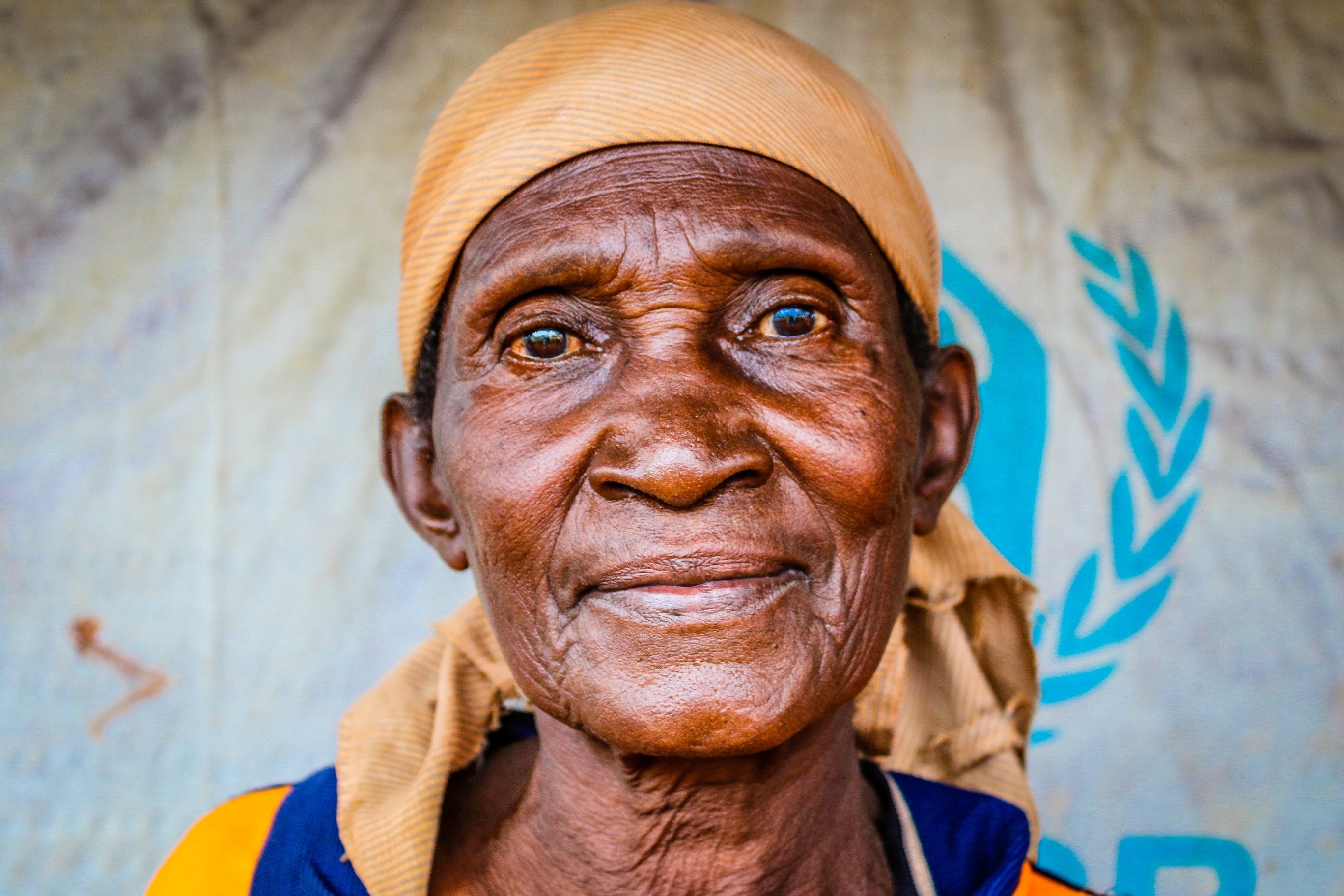After a long period of official denial that coronavirus exists in Tanzania, the government did a dramatic U-turn on COVID-19 policy in early 2021. But the country is facing major challenges to obtain enough vaccines, and to overcome hesitancy amongst the population to increase demand and uptake.
We spoke to Dr Edwin Mung’ong’o, Health and Care Programme Manager at HelpAge International in Tanzania to learn about how the vaccination programme is rolling out in Tanzania and whether it is reaching enough older people.

© Ben Small / HelpAge International
Official denial of COVID-19
When the first case of COVID-19 was reported in Tanzania in March 2020, the government introduced all necessary restrictive measures, including wearing masks and social distancing. But after six months, the government announced that COVID was fully defeated in the country, all restrictions were lifted, and life returned to “normal”.
“President John Magufuli said that through prayer God had delivered Tanzania from COVID-19,” Dr Edwin Mung’ong’o explained.
This was the official position of the government, which it strictly adhered to and compelled others to follow suit. The publication of data on new cases of COVID-19 by sources other than the government became almost a criminal offence. Even in hospitals, doctors did not diagnose COVID-19, referring simply to “respiratory problems”.
“No official data on COVID-19 was available in Tanzania after the last update on 29 April 2020. But at some point in early 2021 it was reported that churches were holding funeral services for the dead every day. One church reported giving funeral services for up to eight people one day, then six on another day and so forth. It was suspected that these people most likely died of COVID-19. In early March 2021, one denomination reported that 25 of its priests and 60 nuns had died showing symptoms of COVID-19,” said Dr Mung’ong’o.
During the period of official COVID denial, HelpAge had to adjust to government policies in Tanzania. Although it continued activities against COVID-19, their purpose was positioned as ‘promoting sanitation and disease prevention’. Mentioning that the activities were to mitigate COVID-19, might not have received a positive response from the Government.
New president and U-turn
The denial lasted until early 2021 when there was an unprecedented increase in the number of high-profile people dying. The government then announced that COVID-19 was in the country and that people should take precautionary measures, but it did not reintroduce preventive measures, and even continued to ridicule people for wearing face masks.
In March 2021, President Magafulli died, and his successor, Samia Suluhu Hassan, declared that Tanzania could not go on as it was. Government policy on COVID-19 took a 180 degree U-turn.
President Hassan appointed a committee of experts, who advised the government to join the global movement and to start vaccination. The president began to wear a mask in public and got vaccinated to set an example for others. The Minister of Health now holds weekly meetings with stakeholders on the accumulated issues of older people, including COVID.
There is, however, barely any data on COVID-19 in Tanzania, despite the change in government policy. Officially, 1,367 cases have been reported and 50 people have died since the start of the pandemic, but the numbers are believed to be much higher.
Vaccine Distribution
Tanzania participates in the African Union vaccine-purchasing programme to ensure its supply of vaccines. The country received around one million Johnson and Johnson vaccines from the USA, through the COVAX vaccine distribution scheme, and 500,000 doses of Sinopharm vaccine have arrived from China. The government has stated that it plans to purchase enough vaccines to cover 60% of Tanzania’s 58 million population, and is allocating funds for that.
As part of the rollout of the vaccine, 1,548 vaccination sites – a huge increase from the initial 550 – have been opened across the country. And three groups are being prioritised – older people, frontline health workers, and people with underlying health conditions.
But at the start of November, only 1.5 percent of Tanzania’s population has been vaccinated, and the rate of vaccination remains incredibly slow. This might not be surprising, given the accumulated hesitancy to vaccines that has prevailed in public policy for so long.
HelpAge is working in collaboration with the government to deliver advocacy and information, including through the media, to convince more older people that vaccines are safe. Most religious leaders in the country are supporting vaccinations, and HelpAge is working with them to persuade their congregations to get vaccinated. They also get vaccinated themselves, encouraging older people to follow suit.
HelpAge has also worked with the government to help organise vaccination outreach services as many older people, particularly those living in rural areas, are unable to reach the vaccination sites. About 60,000 older people had been vaccinated by September, which is 2% of the country’s total population.
Given the recent situation of the country, the progress with vaccination is encouraging, but the pace still seems too slow.
But Dr Mung’ong’o believes that vaccine hesitancy will be overcome: “COVID-19 has killed many people, including high-profile people. People see this, and they find it increasingly difficult to deny that the virus exists and is dangerous. Fewer and fewer people continue to think so.”
By Vitaliy Konovalov, Communications Manager, HelpAge International
